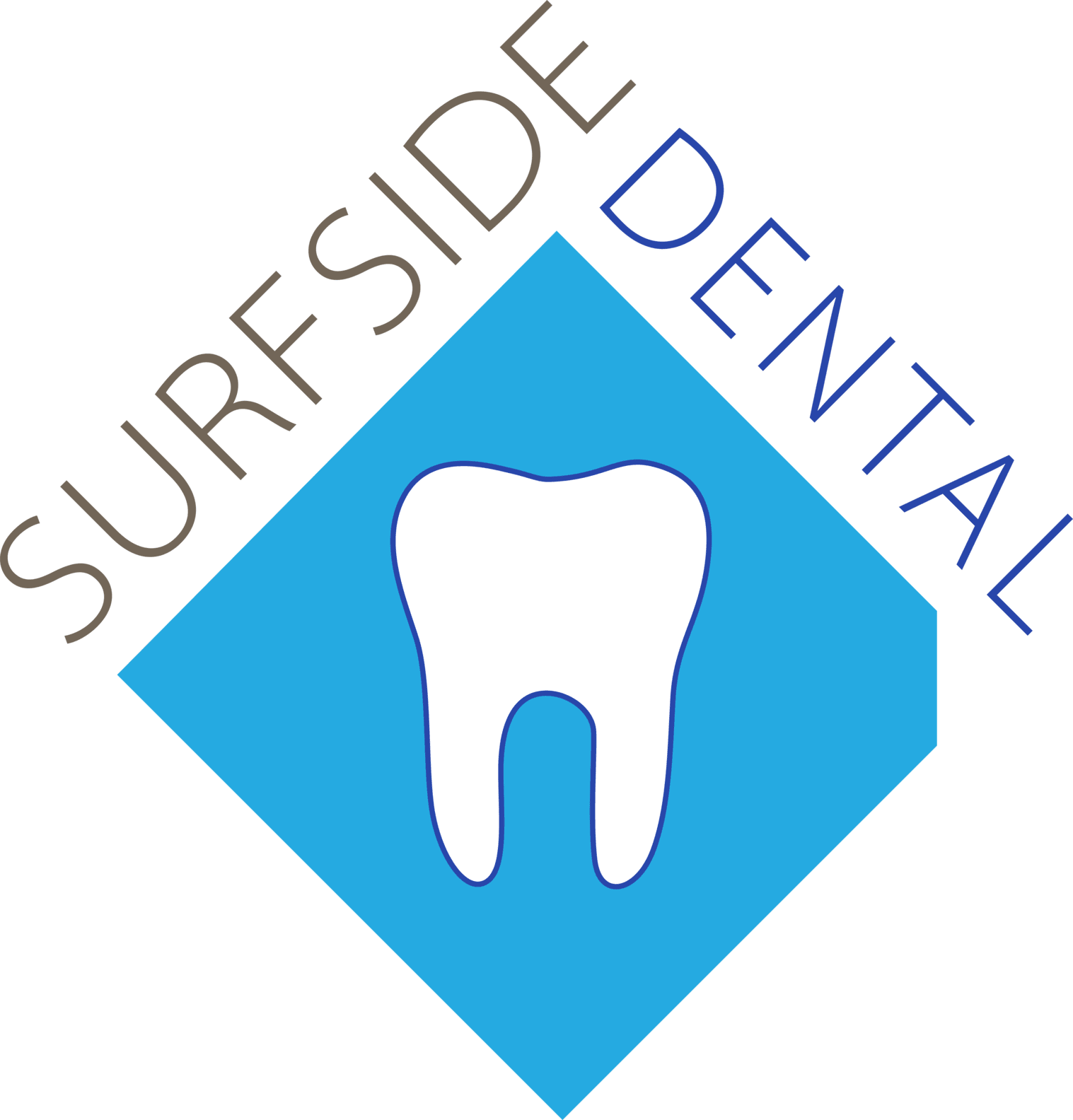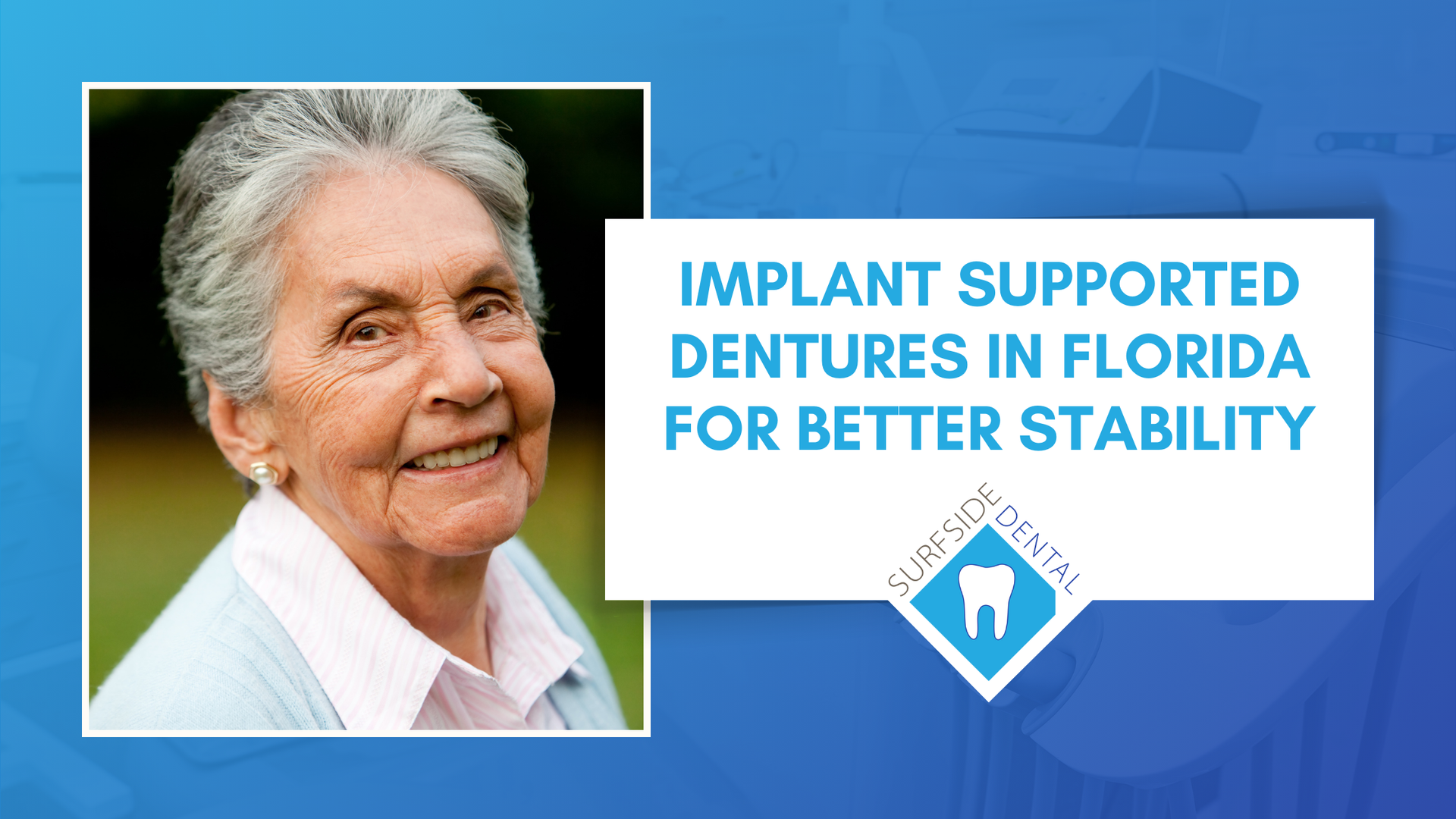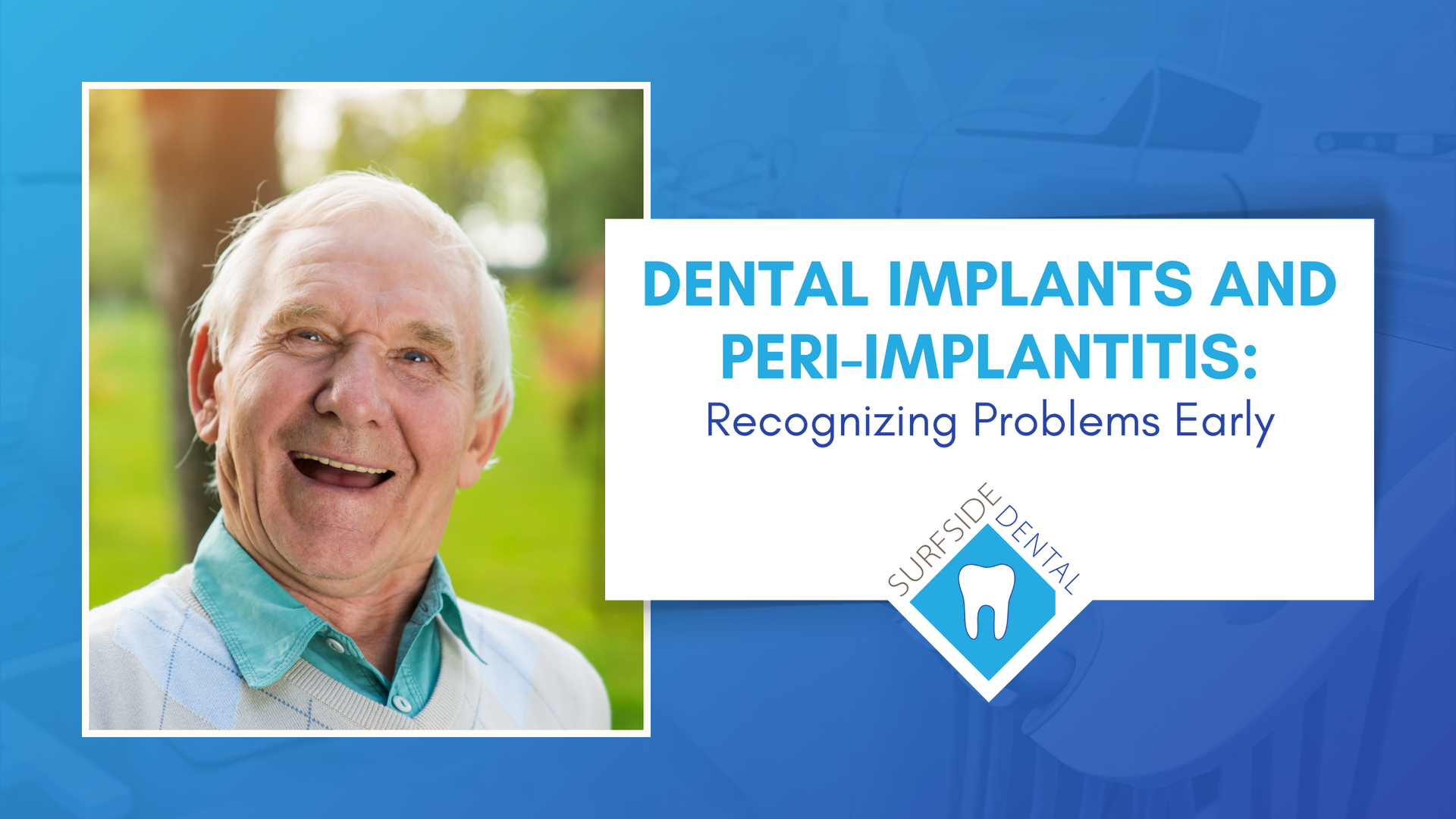Why Gums Recede and How Recontouring Can Help
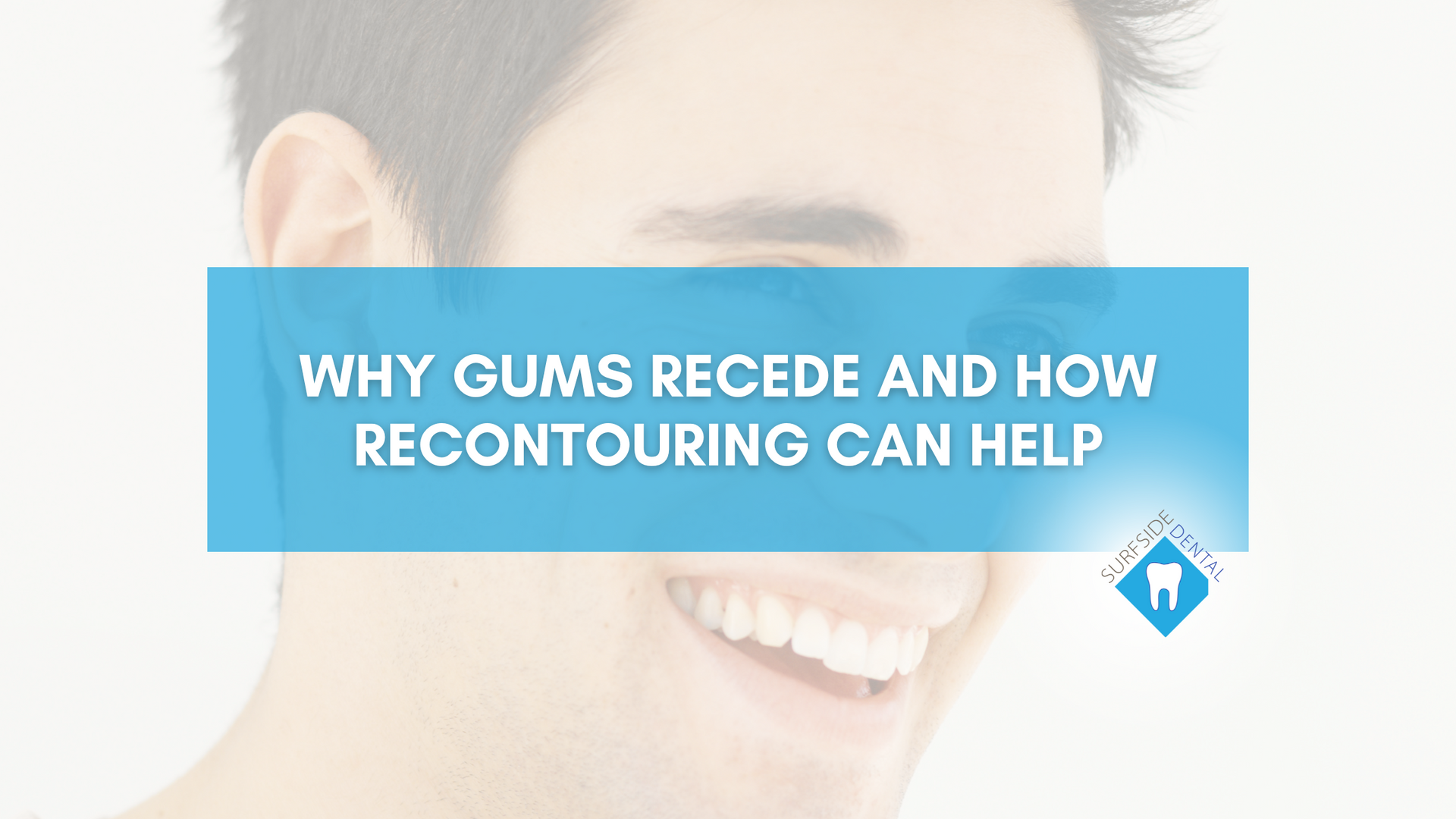
Source: Dr. Marketing
When it comes to maintaining a healthy smile, most people focus on brushing, flossing, and avoiding cavities. But there is another essential piece of the puzzle that often goes unnoticed: your gums. Gum health plays a pivotal role in preserving both your oral and overall health. One condition that deserves more attention is gum recession — a gradual process that, if left unaddressed, can have long-term consequences for your teeth, comfort, and confidence.
At Surfside Dental, we believe that education and early intervention are the cornerstones of lasting oral health. Whether you have just noticed changes in your gum line or are concerned about persistent sensitivity, this guide will walk you through what gum recession is, what causes it, and the many ways it can be treated — including a lesser-known but highly effective option known as gum recontouring.
What Is Gum Recession?
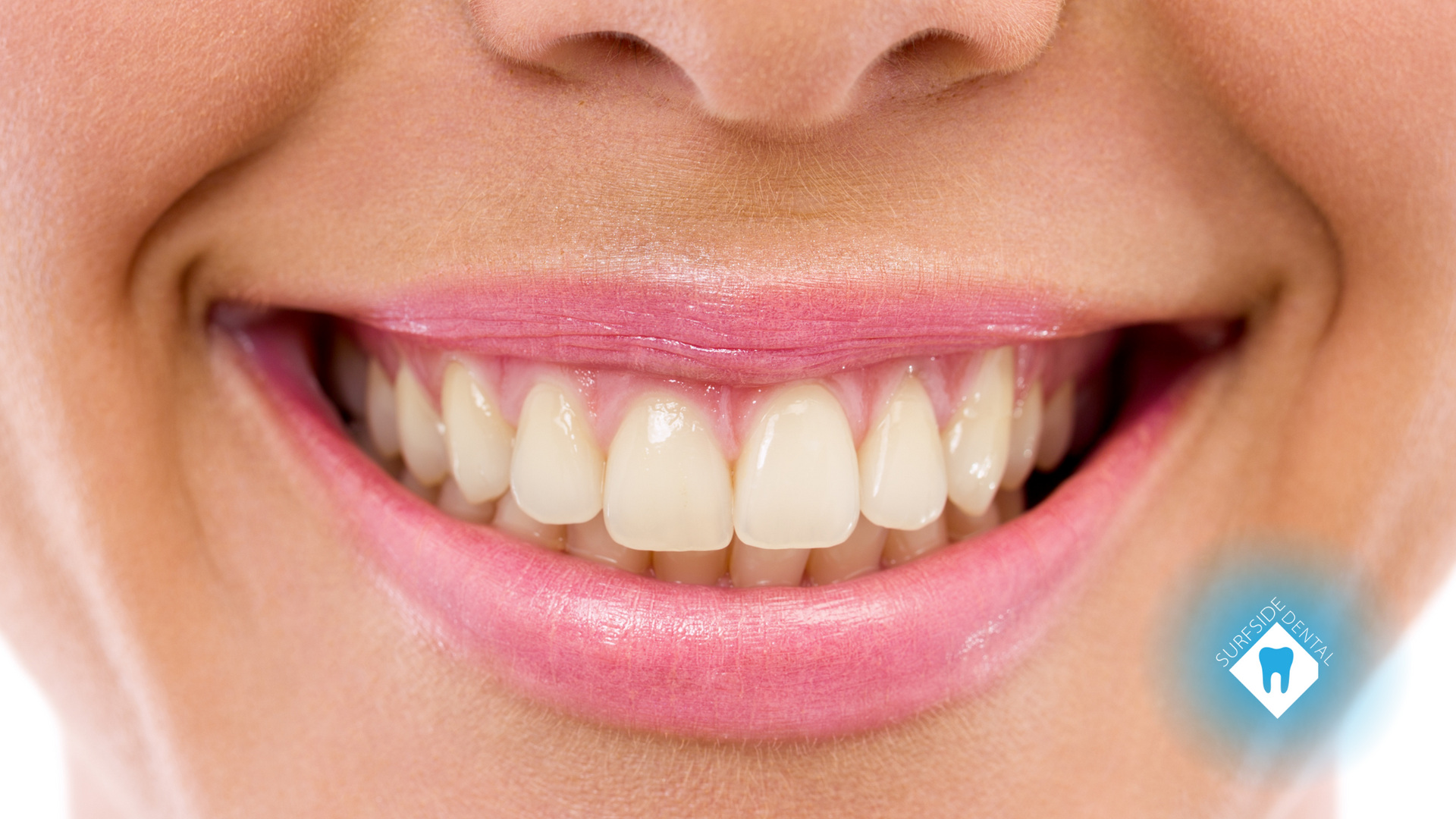
Gum recession occurs when the gum tissue surrounding the teeth begins to wear away or pull back, gradually exposing more of the tooth — and in more severe cases, the root itself. This process can create small pockets between the teeth and the gum line, allowing bacteria, food debris, and plaque to accumulate. Left untreated, this buildup can damage the supporting tissues and bone structures, eventually leading to tooth mobility or loss.
In its early stages, gum recession may not present any pain, which is why it often goes unnoticed. But over time, signs such as increased tooth sensitivity or the appearance of longer teeth begin to surface. Recognizing these early warning signs and seeking professional advice is key to managing the condition before it worsens.
What Causes Gums to Recede?

Gum recession is usually the result of multiple factors working together over time. Poor oral hygiene, which leads to plaque and tartar buildup, is a common cause — but it is not the only one. Even those who brush diligently can experience gum recession if they are brushing too hard or using the wrong tools.
Other contributing factors include:
- Aggressive tooth brushing: Using a hard-bristled brush or scrubbing with too much force can wear down gum tissue.
- Gum disease: Gingivitis and periodontitis are both linked to gum tissue loss.
- Hormonal changes: Pregnancy and menopause can make gums more vulnerable to recession.
- Tobacco use: Smoking or chewing tobacco weakens gum tissue and accelerates recession.
- Teeth grinding or clenching: This places pressure on the gums and supporting bone.
- Dental trauma or poorly aligned teeth: Physical injury or bite imbalances can also stress the gums.
- Systemic conditions: Diseases such as diabetes or HIV may compromise gum health and healing.
While some causes are preventable, others may require ongoing professional monitoring and care.
Recognizing the Symptoms
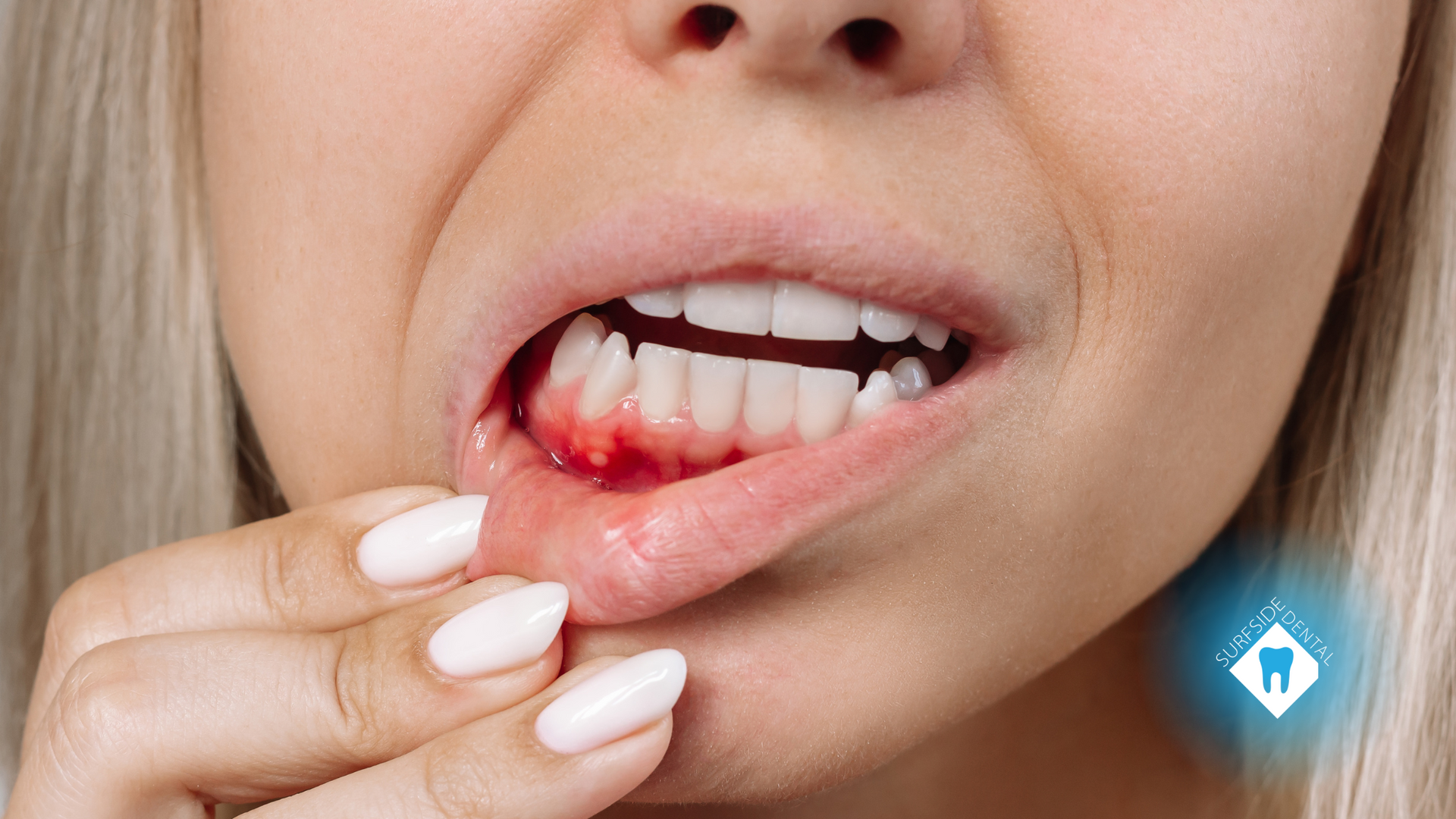
Gum recession progresses gradually, but several symptoms can serve as red flags:
- Red or swollen gums: Healthy gums are pink and firm. Discoloration and inflammation are signs that something is wrong.
- Bleeding when brushing or flossing: While occasional bleeding might seem minor, it can signal underlying gum disease.
- Tooth sensitivity: Exposed tooth roots can cause discomfort, especially when eating hot, cold, or sweet foods.
- Teeth appearing longer: As gums recede, more of the tooth becomes visible.
- Loose teeth or discomfort near the gum line: These are advanced signs that professional evaluation is needed immediately.
If you notice any of these symptoms, early intervention is key. At Surfside Dental, we tailor our approach to each patient’s specific needs, whether you are experiencing early signs or managing more advanced gum issues.
How Is Gum Recession Treated?

Treatment depends on the severity of the condition and the underlying cause. In mild cases, simple lifestyle changes and improved oral hygiene may be enough to prevent further recession. Your dentist may recommend using a soft-bristled toothbrush, modifying your brushing technique, or switching to desensitizing toothpaste.
When professional treatment is needed, options may include:
- Composite restoration: Used to cover exposed roots and protect sensitive areas, composite resins can also close small gaps between teeth and gums.
- Desensitizing agents or fluoride gels: These help reduce discomfort by treating nerve sensitivity and improving enamel resistance.
- Deep cleaning (scaling and root planing): This nonsurgical procedure removes plaque and tartar from below the gum line, allowing the gums to reattach to the tooth.
For more advanced cases, surgical interventions may be considered — and this is where gum grafting and recontouring come into play.
Exploring Gum Recontouring: Reshape Your Smile, Restore Your Health

Gum recontouring, also called gingival sculpting, is a procedure designed to reshape the gum line. While commonly associated with cosmetic dentistry to improve a “gummy” smile, recontouring can also play a therapeutic role in managing gum recession. The goal is to create a balanced, symmetrical gum line while removing diseased or uneven tissue.
In cases of gum recession, gum recontouring can help:
- Remove damaged tissue: Diseased or inflamed gum tissue is gently removed to promote healing.
- Create a more stable gum line: The remaining healthy tissue is reshaped and reattached to ensure better protection of the tooth.
- Support restorative procedures: In some cases, recontouring is performed in preparation for crowns, veneers, or bonding.
Gum recontouring may also be used in combination with gum grafting, where tissue is taken from another part of the mouth and placed over the exposed root. The recontouring ensures a smooth, natural appearance once healing is complete.
At Surfside Dental in Fort Myers and Cape Coral, our team uses modern laser technology and minimally invasive tools to perform recontouring procedures with precision and comfort. Healing times are generally shorter than traditional gum surgery, and patients often notice an immediate improvement in both aesthetics and comfort.
Gum Grafting: When Is It Necessary?

If recession is severe and a significant portion of the tooth root is exposed, gum grafting may be the best course of action. There are several types of grafts, including:
- Connective-tissue grafts: The most common technique, involving tissue from beneath the roof of the mouth.
- Free gingival grafts: Ideal for patients with thin gums, tissue is taken directly from the palate.
- Pedicle grafts: Tissue is partially cut from adjacent gums and repositioned to cover the exposed area.
Recovery typically takes about two weeks, with personalized aftercare instructions to support healing. Our team monitors every step of your recovery to ensure long-term success.
Preventing Gum Recession
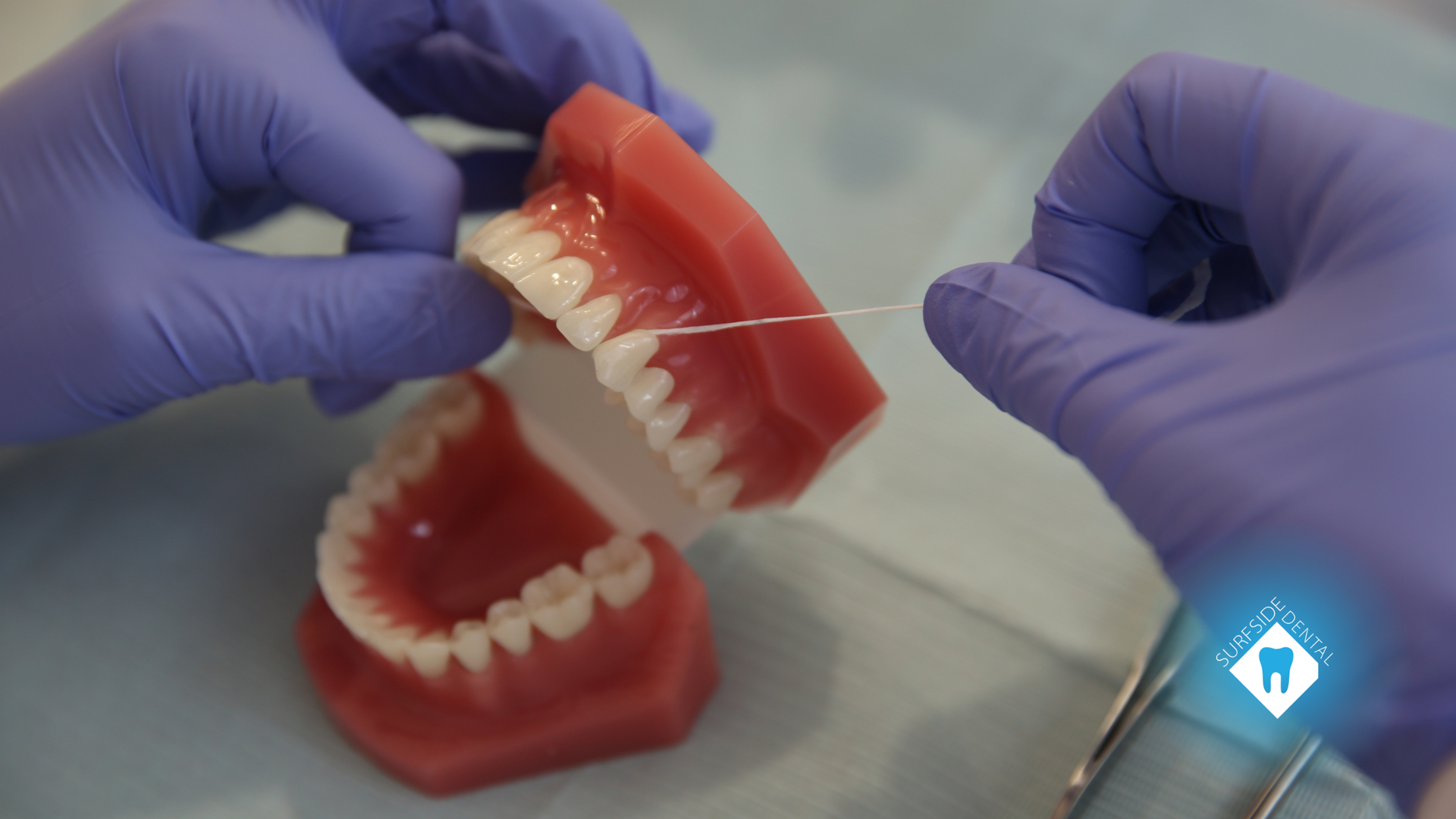
While not all cases can be prevented, there are steps you can take to reduce your risk:
- Brush gently using a soft-bristled toothbrush
- Floss daily with proper technique
- Use non-abrasive, fluoride toothpaste
- Avoid smoking and tobacco products
- Protect your teeth with a nightguard if you grind or clench
- Maintain regular dental cleanings every six months
Most importantly, listen to your mouth. Bleeding gums, sensitivity, or visual changes should not be ignored.
A Stronger Smile Begins with Healthy Gums

Gum recession may start quietly, but its impact on your oral health can be profound. Whether you are dealing with early symptoms or have more advanced concerns, help is available. At Surfside Dental in Fort Myers and Cape Coral, we combine personalized care, advanced techniques like gum recontouring, and a commitment to your comfort to help you reclaim your smile — and protect it for years to come.
Do not wait for discomfort to escalate. Let us help you restore and maintain healthy gums with compassionate, expert care. Schedule your consultation today and take the first step toward a stronger, healthier smile.
